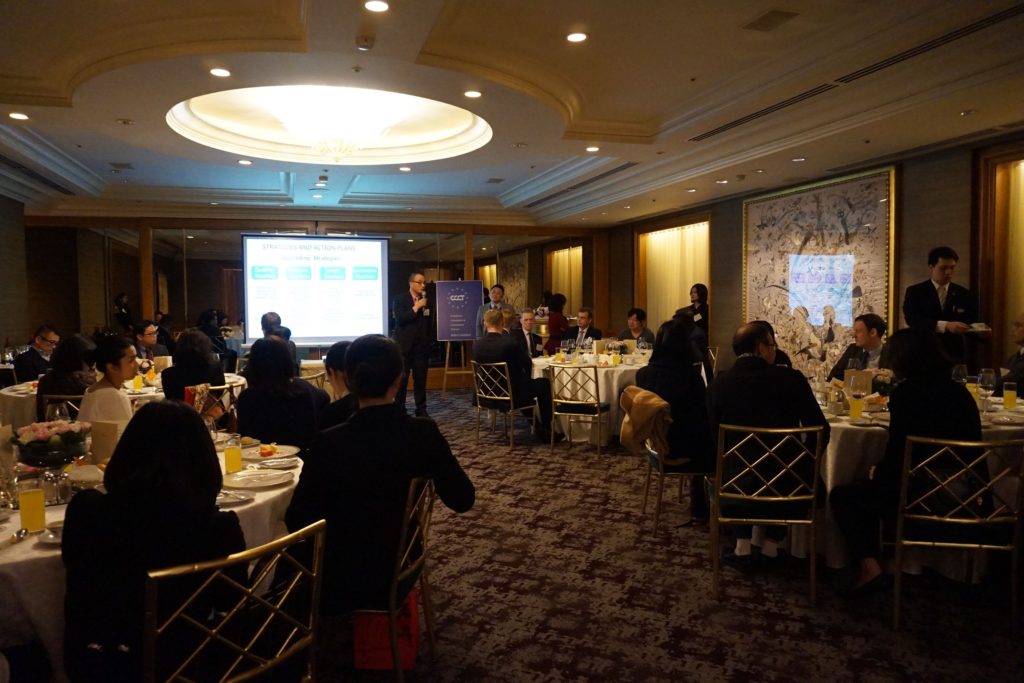Taiwan's tourism action plan

After surpassing the goal of 10 million foreign visitors to Taiwan in 2015, the focus of future tourism development will be on quality rather than quantity. The bureau targets a modest growth rate of around 4.5% in arrivals every year until 2018 (to reach 11.7 million by 2018) and aims to increase tourism receipts (spending by tourists) from NT$753 billion per year in 2014 to NT$830 billion in 2018.
The bureau has targeted four main aspects/areas for future development:
Quality: The bureau aims to improve the level of quality of tourist services by encouraging travel agencies and other stakeholders to raise service quality levels to international standards. The bureau is stimulating this by offering various assistance and incentives and running awards contests for travel agencies and service providers. It is also helping accommodation providers to obtain preferential loans, subsidies and assistance in receiving star ratings. According to Wu, 20 international hotel chain brands and 20 large domestic hotel chain brands are already operating in Taiwan. There are 605 star-rated hotels, 529 homestays and B&Bs certified by the Tourism Bureau and 24 licenced amusement parks in Taiwan. The bureau is helping to develop talent by offering online training courses as well as overseas and domestic training programmes featuring international experts.
Feature tourism: The bureau is promoting Taiwan's major attractions through five themes tied to attractions in major areas that highlight the region's unique features or characteristics. The bureau is working with other government agencies as well as NGOs and private sector stakeholders in this endeavor. For example, the bureau has helped to arrange 41 world class events and 47 local events annually. In addition, the bureau's website offers travel suggestions and other related information for visitors.
Smart tourism: The bureau is working with partners to integrate ICT solutions and information for pre-trip planning, use during the visitor's stay and after their trips.
Sustainable tourism: The bureau has coordinated the setting up of various transport options such as tourist shuttle buses and coaches covering popular routes. According to Lin there are 39 shuttle bus routes linked to Taiwan high speed rail or regular railway stations to transport visitors to and from tourist attractions and 82 kinds of ticket packages. In addition, there are 106 Taiwan Tour Bus packages covering all major areas of Taiwan. The bureau is also actively working to make travel more comfortable and convenient for senior citizens.
According to Lin, the bureau's strategy is aimed at catering to the needs of so-called Fully Independent Travellers (FITs), as their numbers are on the rise. Tourists travelling in group tours now account for only about 40% of visitors. Numbers are much higher for some countries. For example, over 80% of visitors from Japan and 90% of visitors from Hong Kong are FITs, according to Lin.
Besides making tourist information and services smarter, the bureau recognizes the need to cater to senior travellers, who tend to have more time and more money to spend, and those with limited mobility, who need a friendlier environment, such as more convenient transport and a barrier-free (wheel-chair accessible) environment.
The bureau is promoting Taiwan through a number of avenues. It has set up booths at many international trade shows and is promoting Meeting Incentives Conferences and Exhibitions (MICE) business. According to Lin, 240 large-scale incentive tours were arranged last year. The bureau has also run extensive advertising campaigns promoting Taiwan on international TV channels including CNN, the BBC and Bloomberg. The focus of these advertisements is on the unique features of travelling in Taiwan.
The cruise business is also a promising market. According to Lin, 139 cruise ships visited Taiwanese ports in 2014, rising to 230 in 2015. He expects 300 in 2016. This large rise in cruise passengers will be a boon for companies in the retail business. The bureau is also marketing Taiwan as an ideal place for short visits and transit passengers. The bureau is facilitating this by offering free half-day tours for transit passengers. It is also working to attract more visitors from South East Asia by simplifying the visa application processes in South East Asian countries.
